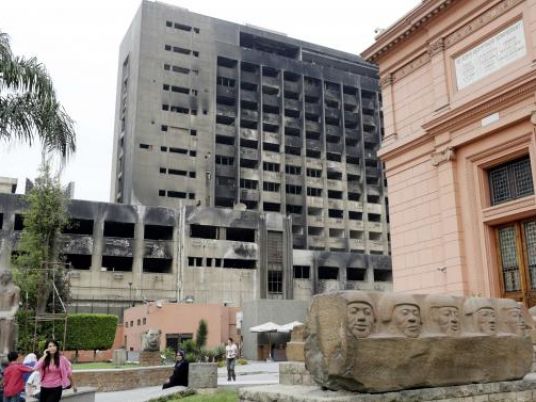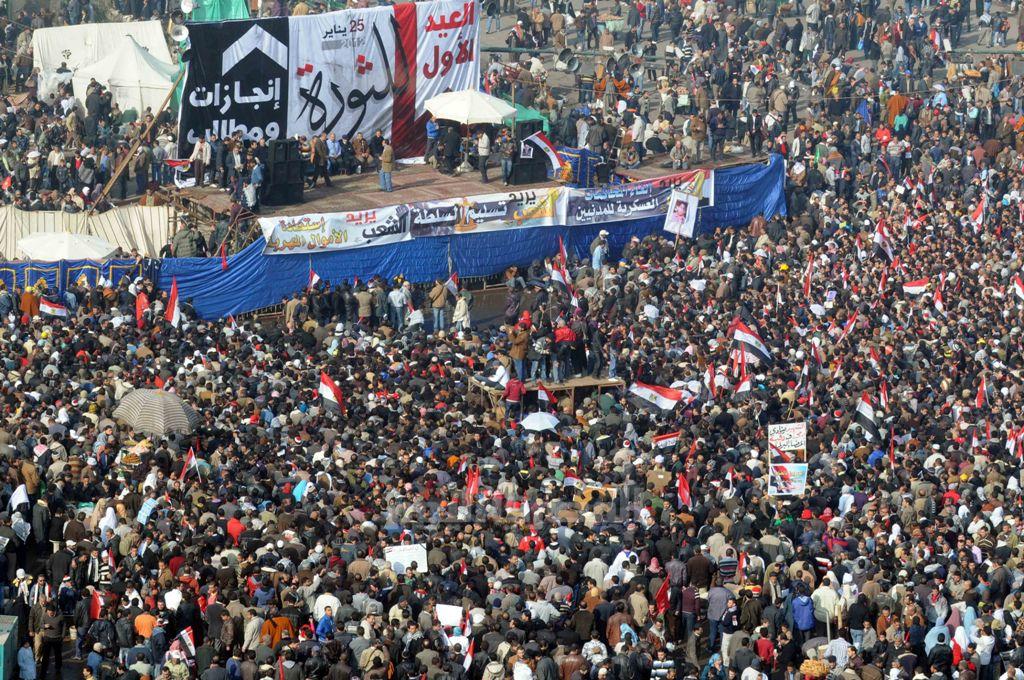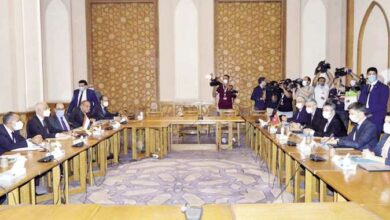Egypt's Muslim Brotherhood has been pushed to the sidelines of mainstream politics after an election it said was rigged, a step that may empower radicals who say an Islamic state can only be achieved by force.
The Islamist group that held a fifth of seats in the outgoing parliament cannot be certain to retain any seats after Sunday's first round of voting, which Egyptian monitors said was littered with abuses. The group may now withdraw from the race.
President Hosni Mubarak's party is assured of victory. But reducing the Brotherhood's presence to a rump — at best — looks like a heavyhanded show of strength by authorities nervous about dissent before Egypt's presidential vote next year.
Quashing the government's Islamist critics in the assembly shuts one more valve for Egyptians to vent frustrations about the ruling party's monopoly on power and surging prices hurting the numerous poor people among a populace of 79 million.
"The current government policy is essentially quite dangerous and may ultimately backfire," said IHS Global Insight analyst Sara Hassan. "A younger more radicalized generation of Islamists allied with the group's hardliners may question this strategy (of non-violence by the Brotherhood), and in their frustration seek other options," she said.
Brotherhood leader Mohamed Badie said this year that squeezing out the group with its moderate Islamist views risked spurring on violent Islamic movements.
Though outlawed under a ban on religious parties, his group has worked around the curbs through social work and by running parliamentary candidates as independents with the declared goal of working peacefully for a democratic Islamic state.
The Brotherhood won 88 parliamentary seats in 2005, an unprecedented tally. In this vote, it secured no seats in the first round and just 26 of its candidates will go to a run-off.
Senior Brotherhood member Essam al-Erian said on Tuesday the group was now considering quitting because "our number will not be enough to carry our message".
While the Brotherhood's bloc has been crushed, the next biggest opposition group in the assembly, the liberal Wafd party, may not match its 12 seats in the outgoing parliament. Other parties won a handful of seats combined.
"The Muslim Brotherhood's and Wafd's reduced presence in parliament should not be seen as a consolidation of power, but a reaction to the increased sub-terrain of discontent," said Barak Seener of the Royal United Services Institute in London.
Analysts said the scale of the defeat betrayed the authorities' jitters before the 2011 presidential race.
"It suggests the regime is nervous about the impending transition and is not willing to take any chances and leave a margin of error," said Shadi Hamid of the Brookings Doha Center.
Mubarak, 82, has not said if he will run again. His health has been under renewed scrutiny since gallbladder surgery in March. If he does not run, there is no designated successor although many Egyptians think his son Gamal is being groomed.
The constitution makes it almost impossible for anyone to run for president without the ruling party's backing, which means any new leader will be chosen behind closed doors by senior establishment figures, not at the ballot box.
Investors have so far largely brushed off the uncertainty over the future leadership, given the attractions of Egypt's sturdy economic growth and pro-business reforms.
"They've had a few thousand years of political stability, they're not going to let it slip now," said Gabriel Sterne, economist at frontier markets brokerage Exotix.
But a spate of clashes between Muslims and minority Christians, coupled with tensions over food inflation now at 22 percent, suggest a brittle social balance in a land where UN figures show a fifth of citizens live on less than US$1 a day.
"The fear remains … that the delegitimized vote will serve as a precipitator of further violence, with sectarian tensions, increasing poverty and feelings of marginalization merely adding to the already increasingly deadly mix," said Hassan from IHS.




